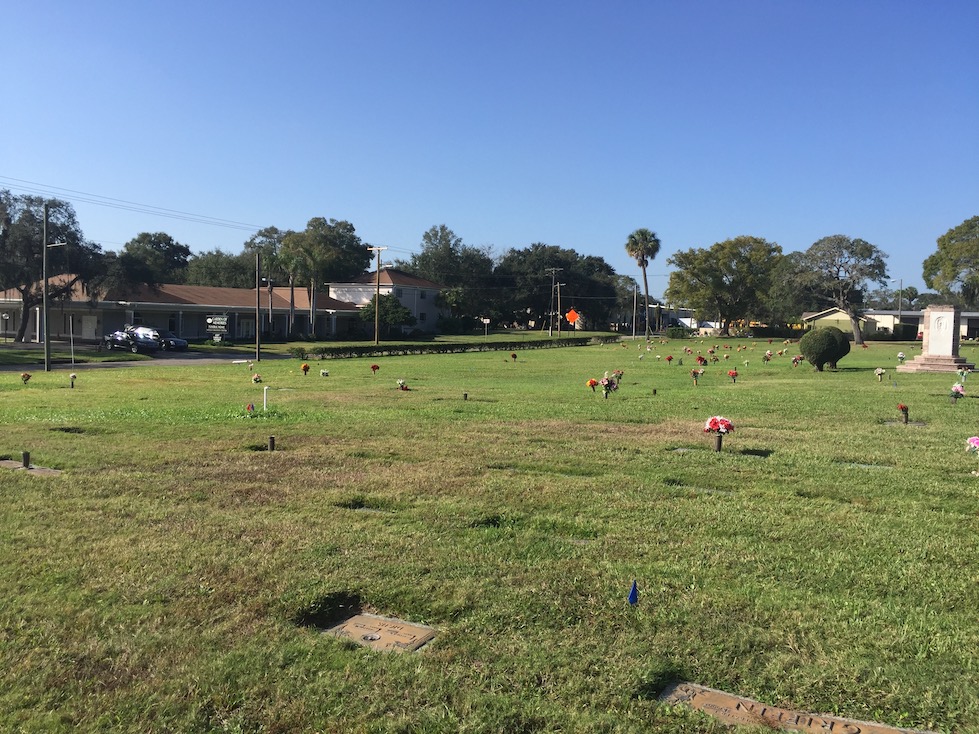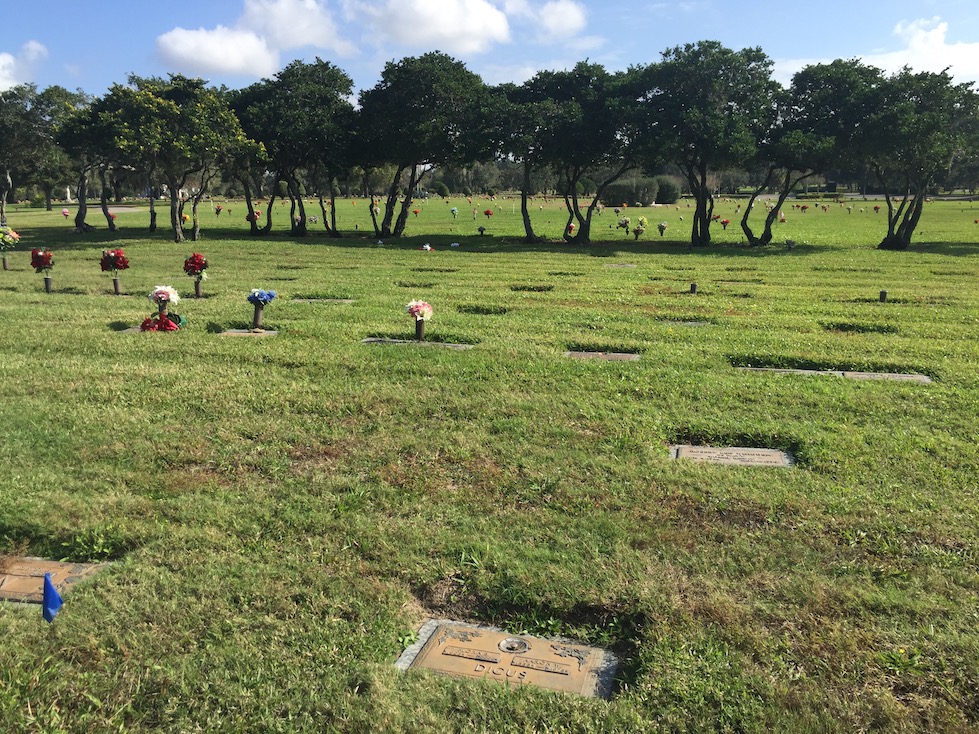Aaron Wesley Dicus
1888-1978
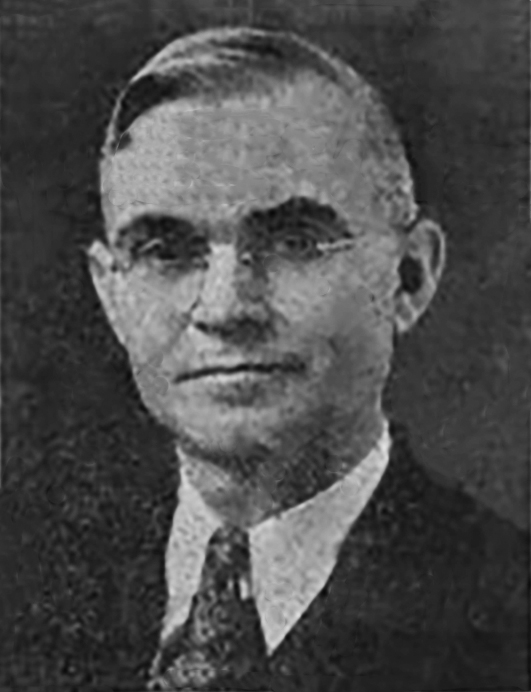
![]()
Aaron W. Dicus (1888-1978)
Solomon said, "A good man leaveth an inheritance to his children's children. . ." (Prov. 13:22). The subject of this sketch left a rich moral and spiritual heritage to his three sons, his six grandchildren, and his six great grandchildren.
The earthly pilgrimage of Aaron Dicus began at Festus, Missouri (near St. Louis) on May 30, 1888. His family moved to Indiana when he was quite young. In the state of Indiana he grew to manhood, received his training, and entered his chosen work.
Seventy Years A Christian
He obeyed the gospel in the fall of 1908, becoming a member of the Normal congregation in Grant County, Indiana. A. W. Harvey was preaching in a meeting, but it was J. S. Johns who did the baptizing. The twenty-year old Dicus was the first person Johns ever baptized.
In 1910, Dicus married Bertha Jane Quick. Her father, David Quick, who lived at Swayzee in Grant County, was a Christian and gave encouragement to young Dicus to preach. His first sermon was delivered in 1913. He held his first meeting in 1915. He filled regular appointments at Cloverdale, Crawfordsville, Traders Point, Bloomington, Bedford, and Indianapolis, all in Indiana. Most of the preaching was done in those days by men who traveled in circuit to keep appointments with various congregations. Dicus held meetings in many places in Indiana and Illinois.
In 1912, he received his B.S. degree from Marion Normal at Marion, Indiana. Later he received the A.B., M.A., and Ph.D. degrees from Indiana University at Bloomington. He taught in high schools in Indiana and Illinois; including seven years in Indianapolis. He then was elected to teach science in the University at Bloomington.
In January, 1930, he moved to Cookeville, Tennessee, to become professor and head of the department of physics at Tennessee Polytechnic Institute. He continued at T.P.I. for twenty years. At one time he was President of the Tennessee Academy of Science, a member of the Southern Association of Physicists, and a member of Sigma Psi, a national scientific honorary society.
During his years at T.P.I., Discus continued to preach by appointment, holding many meetings in the summers. He commuted to Chattanooga regularly in the late 1930's. Preaching the gospel was a work he loved.
In January, 1950, he moved to Temple Terrace, Florida, to become the dean of Florida Christian College. He set up an academic program that helped the college to gain admittance to the Southern Association in a relatively short time. The young school was then in its fourth year, and that was the first year of the presidency of James R. Cope. Dicus brought valuable experience and academic qualifications needed in a young struggling college.
After the move to Temple Terrace, Dicus' wife passed away. In 1953, he married Flora Braden. The following year they moved to Winter Haven, FLorida. Later they moved to Miami, then in 1957 they returned to Temple Terrace.
Gospel Preacher
Aaron Dicus served the following congregations by preaching on a regular basis: Lincoln Street, Bloomington, Inc., 1922-25; Ridgedale, Chattanooga, Tenn., 1937-39; Brooksville, Fla., 1950; Waters Ave., Tampa, Fla., 195152; Winter Haven, Fla., 1954-55; Southwest, Miami, Fla., 1955-57.
The church began meeting in Temple Terrace in September of 1950. Dicus and his first wife were among the few in the original membership. They attended the Wednesday evening services (and on Sundays if someone else happened to be preaching at Brooksville). They were active in the planning of the Temple Terrace congregation. Services were conducted in the Community Building. In 1951, Dicus designed and supervised the construction of the building in which the church still meets. He did much of the work with his own hands. A few years later he supervised the construction of the class room building behind the auditorium.
In his early years as a preacher, Brother Dicus was influenced by E.M. Zerr. There was no foolishness about Zerr. He was a self-made scholar who knew the Bible well. Samuel Piety also had a strong influence on Dicus. Piety had been a lawyer but decided to devote his life to preaching. He was somewhat like the prophet Amos-blunt and to the point. J. S. Johns, J. C. Roady, and A. W. Harvey were among the other preachers who touched his life. Then there were the Sommers. Dicus was well acquainted with Daniel Sommer and his wife Kate. He preached at the old North Indianapolis church and was a guest in the Sommer home. He had high regard for Daniel's son, Chester. According to Dicus, it was Chester who wrote the "Rough Draft," an outline and plea for unity, which became a center of controversy even in the Sommer family. Dicus had no respect for Allen Sommer.
When he moved to Tennessee, there was a keen awareness of the differences between churches of Christ in the North and congregations in the South. After some hesitation, he placed membership with the church at Cookeville, and, as he would express it with a twinkle in his eye and a slight smile, "That made the Cookeville church all right!" During his Tennessee years he became good friends of such outstanding preachers as N. B. Hardeman and Foy E. Wallace, Jr.
Inventor, Author, Song Writer
A. W. Dicus was a man of many and varied talents. He invented a number of gadgets. He was credited with inventing and securing patent rights for the automobile turn signal in 1920. His signals were manufactured at the Dicus-Schelmier plant, of which he was co-owner, in Indianapolis. The plant closed in 1921, and in 1937 his patent (No. 1,359,341) expired. He invented an electric pencil sharpener, an automobile speed governor, and a skill saw.
He wrote and published three books-A Brief Commentary on Romans and Hebrews, Church Leadership, and a volume of Sermon Outlines. He prepared some others works in manuscript form.
He was successful as a builder. In addition to the meeting house at Temple Terrace, he built homes for himself, some apartment houses, and a building at Florida College -which served for years as the class room building but is now a dormitory for boys and known as the Dicus Building.
In his old age, somewhat as a hobby, he took up song writing. He produced about thirty hymns, writing both words and music. "Our God, He Is Alive" has become a very popular song. It is used all across this country and in foreign countries as well. It will be, in all probability, Dicus' most remembered work.
Funeral And Family
Death came to A. W. Dicus following a gradual decline due to old age. He passed away Sept. 2, 1978, being slightly more than three months beyond his ninetieth year. A memorial service was conducted in the Temple Terrace meeting house September 5th. J. D. Evans, one of the elders, led the assembly in singing two of Dicus' songs. This writer read the description of the new Jerusalem in Rev. 21:1-22:5. L. Griffin Copeland, another elder, made a short talk about Brother Dicus' many accomplishments in life. Robert N. Morris, also an elder, led prayer. The worn out mortal body was laid to rest in Garden of Memories Cemetary in Tampa.
Brother Dicus is survived by his three sons-E. A., an elder and preacher at Lorain Ave. in Cleveland, Ohio; David E. of Chattanooga, Tenn.; James T. of Agoura, Calif. His wife, Flora, resides at 201 S. Greenfield Ave., Temple Terrace, Fla. 33617.
Personal Friendship
Brother Dicus had a distinct independence about him. His convictions ran deep. Sometimes he appeared stubborn. He enjoyed a good argument. He possessed one trait, however, on which many preachers seem short. He would not fall out with someone who did not see eye to eye with him.
This writer first met A. W. Dicus in 1950. I was a student at Florida Christian College when he came to be dean. One day I walked into his office with a problem that to me was serious. I fully expected to be treated as a statistic. Much to my surprise he was warmly interested. He was a man with a heart. He exercised the powers of his deanship to work out a solution to my academic problem.
For the past ten years he listened to me preach week after week. Seldom did he leave the meeting house without some word of encouragement. Occasionally he would call. on the phone to express appreciation for some point in a lesson. I have never had a more appreciative listener. He loved the word of God and thrilled to hear it preached. He was able to be in attendance on Sunday mornings, though feeble and nearly blind, until a few weeks before his death.
So long, friend Dicus. I hope we may meet in the heavenly city!
-Irvin Himmel, Truth Magazine XXII: 43, November 2, 1978, pages 697-698
![]()
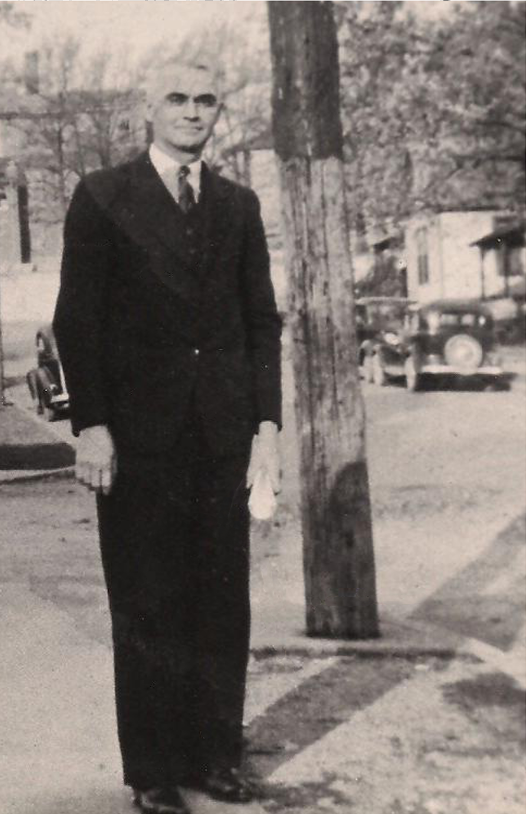
Source: https://aaronwesleydicus.wordpress.com
![]()
Our God—He Is Alive
I suspect that many Christians—whether young or old—know quite well the beautiful and stirring hymn, "Our God—He is Alive," by A.W. Dicus. And I suspect that most of those same people know the beautiful and stirring refrain with which the song begins: "There is, beyond the azure blue, a God, concealed from human sight. He tinted skies with heav'nly hue, and framed the worlds with His great might."
But while the hymn itself is well known to most of us, sadly, its famous author is not. Aaron Wesley Dicus was born on May 30, 1888 in Festus, Missouri. When he was just a small child, his family moved to Swayzee, Indiana, where he was reared and later graduated from high school. In that same small, north central Indiana town, he met and married his first wife, Bertha Jane, in 1908—the same year he was baptized. It was that year, on the occasion of his baptism, that he made a vow: "If the Lord will allow me to get an education," he said, "I will use it in service to Him." The Lord would indeed allow him to obtain an education. And he would spend the rest of his life remaining true to that vow.
In fact, it was shortly after his baptism that he began to prepare himself to preach and to obtain the education he wanted so badly. He started his teaching career in a one-room rural schoolhouse, but left that position to become an inventor. I suspect that few people, in or out of the church, are aware of the fact that A.W. Dicus is the man who, shortly prior to the Great Depression, invented the automobile turn signal!
He began preaching full time for the church in Bloomington, Indiana, and around 1925 was offered a student instructor scholarship at the University of Indiana, which helped pay for some of his school expenses. He continued to preach whenever possible, in order to help pay for things the scholarship did not cover. Eventually, even though he had to drop out of college on more than one occasion to earn money to continue his schooling, he graduated with B.S., M.A., and Ph.D. degrees. In 1929, he was offered the job of chairman of the department of physics at Tennessee Tech in Cookeville, Tennessee—a position he held for a number of years. In the mid-1940s, Dr. Dicus became heavily involved in training graduates for nuclear studies in connection with the Oak Ridge National Laboratories. One of his former students, atomic scientist Ray Kinslow, was hired to work at Oak Ridge, and later observed that A.W. Dicus "probably had more of his students at Oak Ridge than any other physics professor. I was one of those. After doing atomic research at Columbia University in New York, I came to Oak Ridge and hired probably more than half of his former students there, including one of his sons."
Even though he could have stayed on for many more years at Tennessee Tech, he chose to leave his prestigious position at the University and move to Temple Terrace, Florida, to become academic dean of Florida College, where he worked until his retirement in 1954. [His first wife, Bertha Jane, had died, and in 1953 he married a sweet Christian lady by the name of Flora, who was instrumental in encouraging him in his song writing.] Due in large part to his reputation and untiring efforts, Florida College was accredited by the Southern Association of Colleges and Schools.
During his retirement, Dr. Dicus remained active in the Lord's work, preaching full time for congregations in Winter Haven and Miami, Florida. He also wrote three books: Sermon Outlines, A Commentary on Hebrews and Romans, and Church Leadership. In addition, he wrote more than thirty-five songs, among which was "Our God—He is Alive." Eventually, his health began to fail and he was afflicted with cataracts and glaucoma, which left him almost completely blind. Even then, however, he continued to compose songs, including the beautiful, "Lord, I Believe." Dr. Dicus died on September 2, 1978 in Tampa, Florida. Although he long ago quit these earthly walks, it truly may be said of A.W. Dicus that he, "being dead, yet speaketh" (Hebrews 11:4). As a result of his dogged determination to remain true to his vow to use his hard-earned education (and considerable speaking and song-writing talents) for the Lord, even today he reminds us—each and every time we sing the song he composed— of the fact that OUR GOD—He Is Alive!
-Dr. Bert Thompson, "Our God-He Is Alive. Note: This biographical sketch is part of an introduction to a fuller article written by Dr. Bert Thompson for Apologetics Press. See fuller article here.
![]()
A. W. Dicus
We lament the passing of A. W. Dicus on September 2. He passed away at the age of 90 and after months of declining health. He will long be remembered for two hymns now being widely used by brethren everywhere: "Lord, I Believe" and "Our God, He Is Alive." His interests were wide. He taught physics at Tennessee Tech University and was head of the department. He did much research in nuclear physics. He was an inventor and was credited with inventing the automobile turn signal. For several years he was Dean of Florida College, taught physics and Bible. As a student there during that time, I well remember some of his assembly talks on the universe and its evidence of God. The content of some of those talks is well summarized in "Our God, He Is Alive." He was a remarkable man, led a most interesting life and indeed left foot-prints on the sands of time. Though his other interests and accomplishments may not be as long or as well remembered, every time saints assemble and blend their voices in one of his great hymns, it may be said of A. W. Dicus that "he being dead, yet speaketh." We extend our sympathy and best wishes to his widow, Flora and their three sons.
-Connie W. Adams, Searching The Scriptures, December, 1978, page 4.
![]()
A Scientist With A Song
The living generation owes a great debt of gratitude to the past. This is true in every sphere of life. As American citizens, we owe a great debt to those who fought the revolution, won our independence, and set up a system of constitutional government that has endured for more than 200 years. As men and women who enjoy the affluence of America, we owe a debt to those hearty pioneers who tamed a wilderness and laid the foundations for our economic prosperity. And as members of the New Testament church, we owe a great debt to men and women of faith of earlier generations who laid the foundations upon which we build.
It is not unusual for the younger generation to minimize this debt to the past. Youth is attracted to the new and novel and tries to brush aside the past as out-of-date and irrelevant to their concerns. But even though they may not recognize it or confess it, there are so many ways in which young people are indebted to those who have gone before them.
There is a song that is now popular among young people that illustrates this.
Nearly 30 years ago, I taught at a small Christian college in Florida. The school was small, and the faculty was young and inexperienced. It was a great inspiration to this young inexperienced faculty, therefore, when a distinguished Christian scientist, Dr. A. W. Dicus, joined our number to serve as academic dean and give intellectual leadership to our faculty.
Dr. Dicus had already had an impressive career as the head of the Department of Physics at Tennessee Tech University. He was a distinguished scientist and renowned physics teacher. During the dark days of World War II when the developmental work was being done of the atomic bomb, Dr. Dicus is said to have sent more physicists into the Oak Ridge laboratories than any other physics teacher in America. However, Bro. Dicus did not find complete satisfaction in his work in a state university and decided that he wanted to devote· part of his life to Christian education. Though he had not yet reached the normal retirement age, bro. Dicus took an early retirement from Tennessee Tech, and he came to Florida at a modest salary to serve as academic dean at a small struggling Christian college.
Through the years that I worked under bro. Dicus, he was a great source of strength and inspiration. As a young, inexperienced teacher, I could go to him for counsel and encouragement. But I remember bro. Dicus as more than a distinguished physicist turned college dean. I remember him as a disciple of Christ, a man of deep faith, and a man who expressed that faith in song.
For it was Dr. A. W. Dicus who wrote both the words and music of the song that is now so popular among young people in the church:
There is beyond the azure blue,
A God concealed from human sight,
He tinted skies with heavenly blue,
And framed the worlds with His great might.
There was, a long long time ago,
A God whose voice the prophets heard,
He is the God that we should know,
Who speaks from His inspired Word.
Our God, whose son upon a tree,
A life was willing there to give,
That he from sin might set man free,
And evermore with Him could live.
There is a God, He is alive,
In Him we live, and we survive,
From dust our God created man,
He is our God, the Great I Am.
Whenever I hear a congregation singing these words today, and especially a congregation of young people. I think of bro. Dicus and a lump comes into my throat. It is a source of spiritual strength to me to know that these great words of faith were written by a distinguished scientist. It is also a gentle reminder of the great debt of gratitude that every generation owes to those who have gone before.
Bro. Dicus died just a few months ago at about 90 years of age. But even though bro. Dicus is gone, he still lives on wherever Christians sing "There is a God. He is Alive."
- Bill J. Humble, Firm Foundation, February 13, 1978, page 4 [100]
![]()
Advertisement For Meeting Involving A.W. Dicus
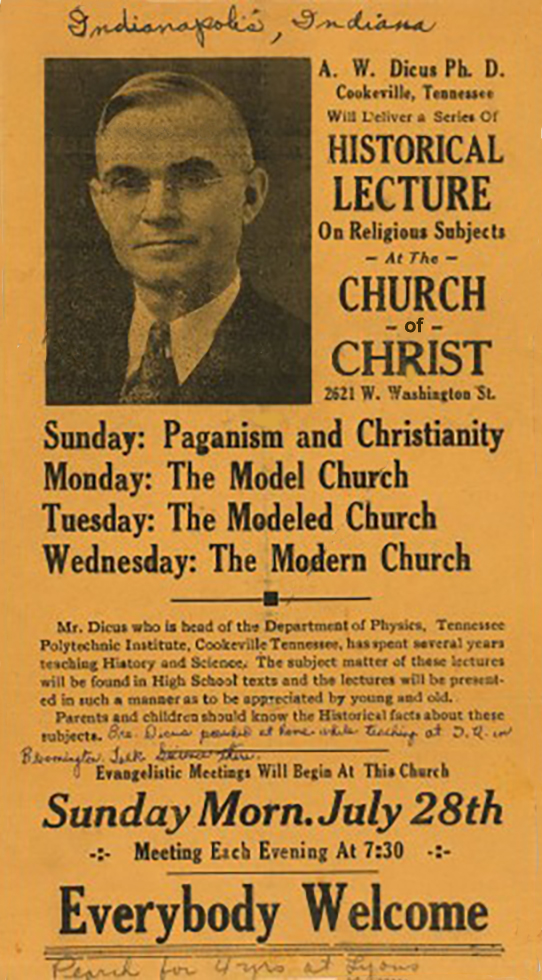
Source: Abilene Christian University Blog
![]()
Directions To Grave
A.W. Dicus is buried in the Tampa Garden Of Memories/Myrtle Hills Memorial Park in Tampa, Florida. Directions To The Cemetery are as follows: In Tampa heading SW take Exit 3 off I-4. Don't take the first right on the ramp. Stay straight until you get to the light and turn right on Hwy 41/599. Follow the road around until it continues on N.40th St. Go about 500 yards and turn right on E. Lake Avenue. Travel out until you see the cemetery on the left, just past 42nd St. Directly across from the funeral home is the Scriptures Garden. Look for statue in the center of the section. Go to statue and in a straight line go right, heaing toward a line of trees. The Dicus plot will be a little past midway of the statue toward the treeline. Other preachers buried here are James P. Miller, J.W. Franklin.
Plot Location: Scriptures Garden Plot #137C, Spaces 3,4
GPS Location
27.978189, -82.410993
![]()
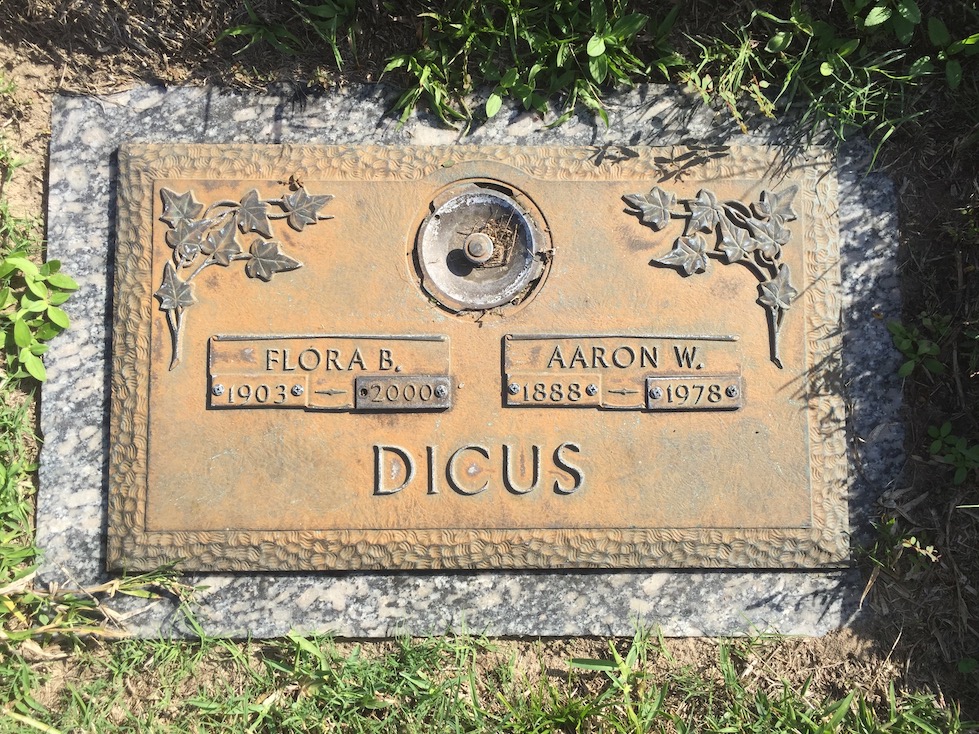
DICUS
Flora B. 1903 - 2000
Aaron W. 1888 - 1978
![]()
Photos Taken 12.28.2016
Webpage produced 11.17.2018
Courtesy Of Scott Harp
www.TheRestorationMovement.com
![]()
